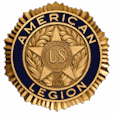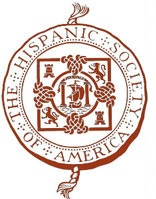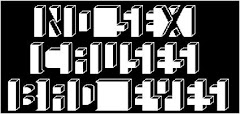

On history's ash heap
Wednesday, February 20th 2008, 4:00 AM
By one count, there were 638 CIA plots to kill him. But the exploding cigar didn't work. Neither did the poison pen syringe. The Bay of Pigs was a botch job. In the end, it was Fidel Castro's own aged body that removed him from the Cuban presidency - nature taking its course.
Wednesday, February 20th 2008, 4:00 AM
By one count, there were 638 CIA plots to kill him. But the exploding cigar didn't work. Neither did the poison pen syringe. The Bay of Pigs was a botch job. In the end, it was Fidel Castro's own aged body that removed him from the Cuban presidency - nature taking its course.
"I believe that all of us ought to retire relatively young," Castro told Playboy in 1967, nine years into his reign.
If only El Jefe had been true to his word.
Castro's fellow Cubans, on the island and in the U.S., would have been spared almost a half-century of misery. But no, he steps down at 81 after an extraordinary run on the world stage.
How very long ago it was that fiery young revolutionary Fidel Castro, joined at the hip with comrade Che Guevara, fought his way down from the Cuban mountains to overthrow Fulgencio Batista and roll victoriously into Havana.
And how easy it was to believe Jan. 8, 1959, that this athletic, Jesuit-educated, swashbuckling guerrilla would lead Cubans to a brighter future.
Indeed, he did free his people from a brutal dictatorship.
And then, immediately, he began oppressing them even more. From the start, he maintained an iron grip on power by the bullet, not the ballot.
The Cuba Archive project has documented 6,000 firing-squad executions and more than 1,000 extrajudicial assassinations since Castro took power. And in this "democracy," collecting signatures on a petition for government reform was grounds for 20 years behind bars.
Here was a proletarian paradise from which proles paddled furiously.
But Castro was devilishly smart. He made himself a global player by serving as the cat's-paw of the Soviet Union. And, 90 miles off our shore, he was the perfect distance for taunting 10 U.S. Presidents.
There was Dwight Eisenhower, who put in place the first Cuban embargoes and hatched early plans for regime change.
There was John Kennedy, who for 13 days in October 1962 stood at the brink of nuclear war because Castro had welcomed Soviet missiles onto his island.
There was Jimmy Carter, who tried to make nice, only to be flooded with Mariel boatlift refugees - many of them from prisons and asylums.
There was Ronald Reagan, who invaded Grenada to turn back Cuban adventurism.
And there was Bill Clinton, into whose lap fell 5-year-old pawn Elian Gonzalez.
All the while, to the Cuban people, Castro was a thug. To this day, agents spy on dissidents. An assembly of more than three people, including for religious services in homes, has been punishable by prison.
And, of course, trying to leave without permission is a crime - one that countless Cubans have committed in ramshackle boats.
Health failing fast, unseen in public for months, the old Cold War relic now passes the cigar to his faithful younger brother Raul- by "younger," we mean age 76 - who leads Cuba's military and runs domestic security.
It's widely believed the new boss is less hard-line than the old one. Still, expecting markedly greater freedoms under Brother Raul is doubtful.
But true change will come to Cuba sooner or later.
And someday millions will enjoy the social and economic vitality and the basic human rights that for half a century have passed them by.
Early on in his fight to overthrow Batista, Fidel Castro mounted a failed revolution and was put on trial. Before the court, he delivered perhaps the most famous oration of his life, a four-hour address in which he said:
"Condemn me. It does not matter. History will absolve me."
We do. It does. History will not.








+(3).jpg)



.jpg)
+(3).jpg)


No comments:
Post a Comment